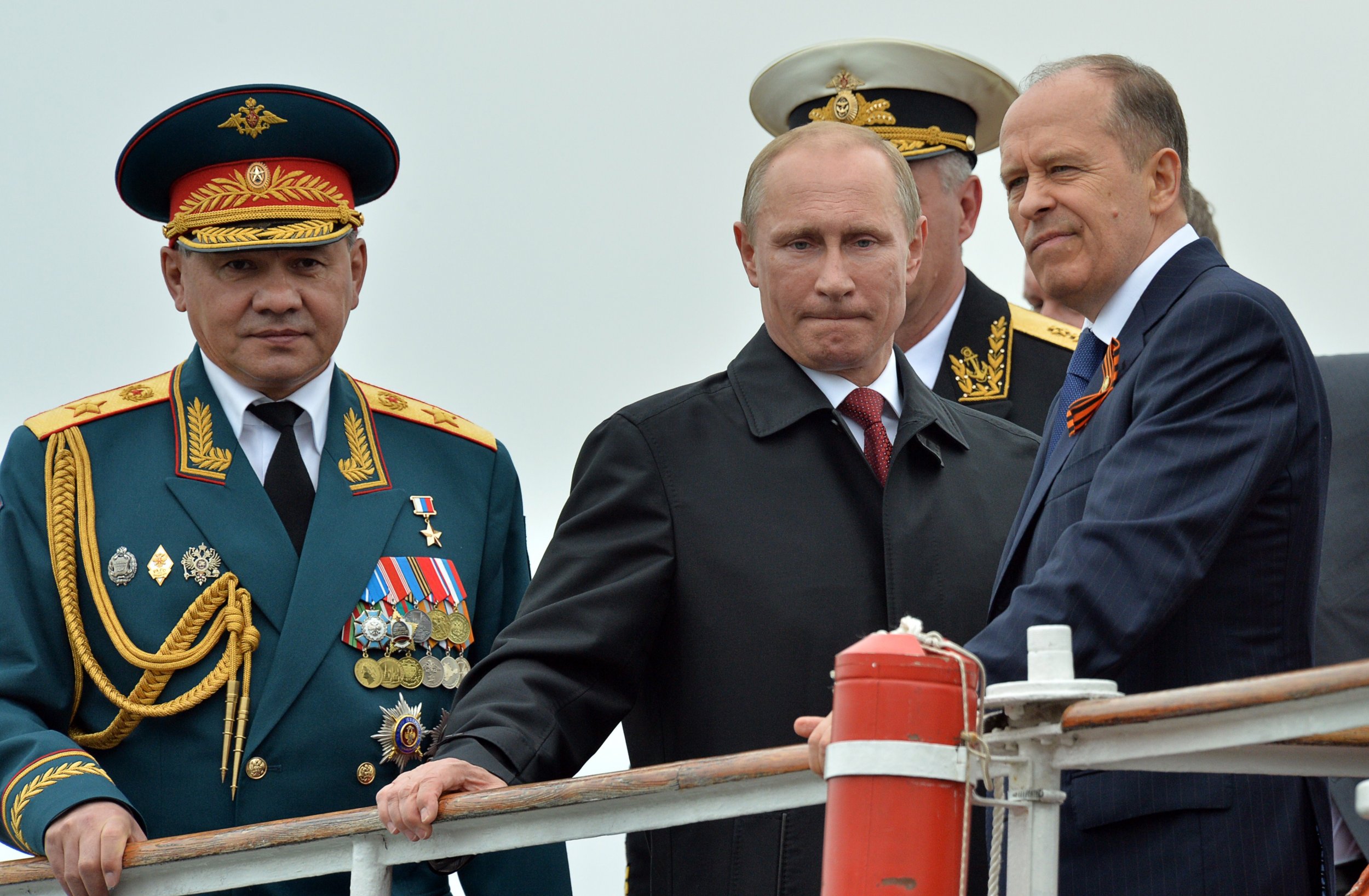
Russian President Vladimir Putin has declared the infamous Soviet Cheka secret police "integral" to the country's history and stated that those who served in the ranks of the Kremlin's security forces were patriots.
"This year we mark the 100th anniversary of the All-Russian Emergency Commission for Combating Counter-Revolution and Sabotage (VChK)," Putin said at a gala in Moscow commemorating the annual holiday for Russia's security services. He hosted the event at the Kremlin for Russia's security and intelligence community, celebrated every year on the anniversary of the VChK, also known as the Cheka's founding.
Despite the Cheka centennial, Putin noted that "the history of the homeland's intelligence services of course does not (only) date back a century."
Read More: Here is why Putin is refusing to bury Vladimir Lenin from his Moscow mausoleum
The Cheka were founded with the Soviet Union and quickly became the muscle of the one-party state lead by Vladimir Lenin. Under director Felix Dzerzhinsky, labeled "Iron Felix," the Cheka were tasked with finding, interrogating and executing suspected opponents to Lenin, at their own discretion.
In the century that followed, the state's security and intelligence agency was repeatedly reformed and renamed, but its streak of violently enforcing the will of the regime remained, albeit to varying degrees. The newly formed GPU took the mantle in 1922 and then in 1934 Joseph Stalin rebranded it as the NKVD, which is now synonymous with the brutal campaign of internal repressions, killing and jailing millions. After Stalin's death, the KGB formed in the NKVD's place and today its most direct heir is Russia's federal security service—the FSB—sitting in the KGB's iconic Moscow headquarters.
Putin, who once served in the KGB and rose to be the FSB's director in 1998 did not refer to the brutal practices of the Cheka or its successors at the gala, but praised its intentions and triumphs, according to the Kremlin.
"Regardless of the historical circumstances, the absolute majority of the people who choose this difficult profession have always been true servants of the state and patriots who went about their duties with dignity and honesty, and placed service to the Fatherland and our people above all else," Putin said.
"We remember and will never forget how young men, our comrades-in-arms, rescued hostages, used their bodies to shield people from the bullets of militants, and eliminated terrorists, which they continue to do to this day," Putin said. "I am aware of your skillful and expert field work as you continue to outwit foreign intelligence services and deliver blows to organized crime and corruption."
Related: Russia dismissed Latvia's claim of $210 billion in Soviet-era damages
The Russian president was not the only one presenting an airbrushed continuum with today's law enforcers and the agents of the Soviet Union, as the current FSB chief Alexander Bortnikov told press that the Cheka's harsh methods stemmed from the unrest around Russia's civil war. "As you can imagine, an emergency situation calls for the necessity of adopting emergency measures," he told state-run newspaper Rossiyskaya Gazeta.
Many of Russia's neighbors take a much dimmer view of the history of Moscow's security services, as Dzerzhinsky's homeland, Poland, was among the first to remove his monument in 1989. Meanwhile Ukraine is preparing posthumous charges against Stalin and his secret police chief Lavrentiy Beria for mass forced deportations.
Uncommon Knowledge
Newsweek is committed to challenging conventional wisdom and finding connections in the search for common ground.
Newsweek is committed to challenging conventional wisdom and finding connections in the search for common ground.
About the writer
I am a Staff Writer for Newsweek's international desk. I report on current events in Russia, the former Soviet Union ... Read more
To read how Newsweek uses AI as a newsroom tool, Click here.






